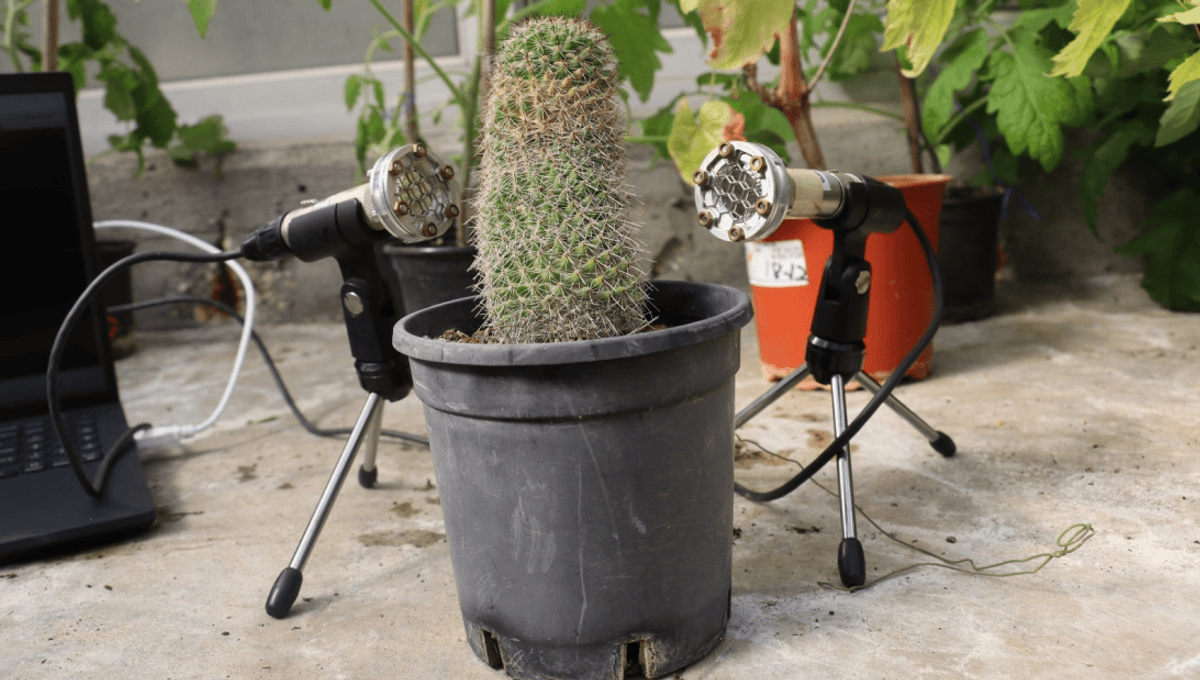
Got a plant nearby? Is it screaming? The truth is that if you’re behind on your botanical care, it might be, it’s just that the human ear can’t hear it. New research has shown that plants are capable of producing ultrasonic sounds that are beyond the range of the human ear, and these distress signals carry information about the plant’s health.
“From previous studies we know that vibrometers attached to plants record vibrations,” said Professor Lilach Hadany from the School of Plant Sciences and Food Security at the Wise Faculty of Life Sciences in a statement sent to IFLScience. “But do these vibrations also become airborne soundwaves – namely sounds that can be recorded from a distance? Our study addressed this question, which researchers have been debating for many years.”
The study used different plant species, subjecting them to conditions like dehydration and injury to see if this influenced their output. They then placed the plants in an acoustic box next to ultrasonic microphones capable of detecting and recording sound at frequencies of 20-250 kilohertz (the maximum frequency detected by a human adult is about 16 kilohertz).
Its subjects included mostly tomato and tobacco plants – but wheat, corn, cactus, and henbit were also recorded. The recordings revealed that tomato plants, which for the most part don’t make much noise, make quite the ultrasonic ding when they’re dehydrated, diseased, or injured. What’s more, they made different sounds for different problems.
Plants made sounds at frequencies between 40 and 80 kilohertz, well above what the adult human ear can detect. While healthy plants make less than one sound per hour, those under stress were making dozens of noises within the same time frame.
The harrowing realization means that if you’ve got a lot of unloved plants in your home, it could be filled with screaming. You just can’t hear it.
“In this study we resolved a very old scientific controversy: we proved that plants do emit sounds! Our findings suggest that the world around us is full of plant sounds, and that these sounds contain information – for example about water scarcity or injury,” continued Hadany. “We assume that in nature the sounds emitted by plants are detected by creatures nearby, such as bats, rodents, various insects, and possibly also other plants – that can hear the high frequencies and derive relevant information.”
“We believe that humans can also utilize this information, given the right tools – such as sensors that tell growers when plants need watering. Apparently, an idyllic field of flowers can be a rather noisy place. It’s just that we can’t hear the sounds!”
The study is published in Cell.
Source Link: Stressed Out Plants Are Screaming, We Just Can't Hear Them